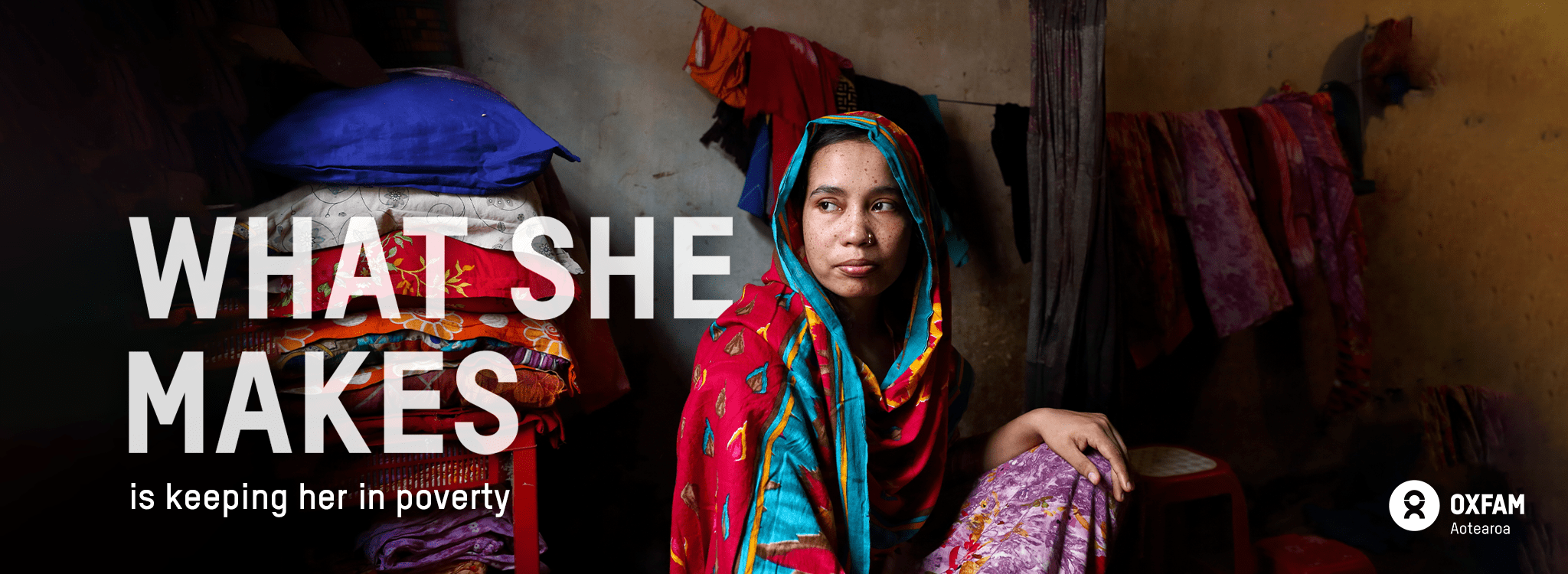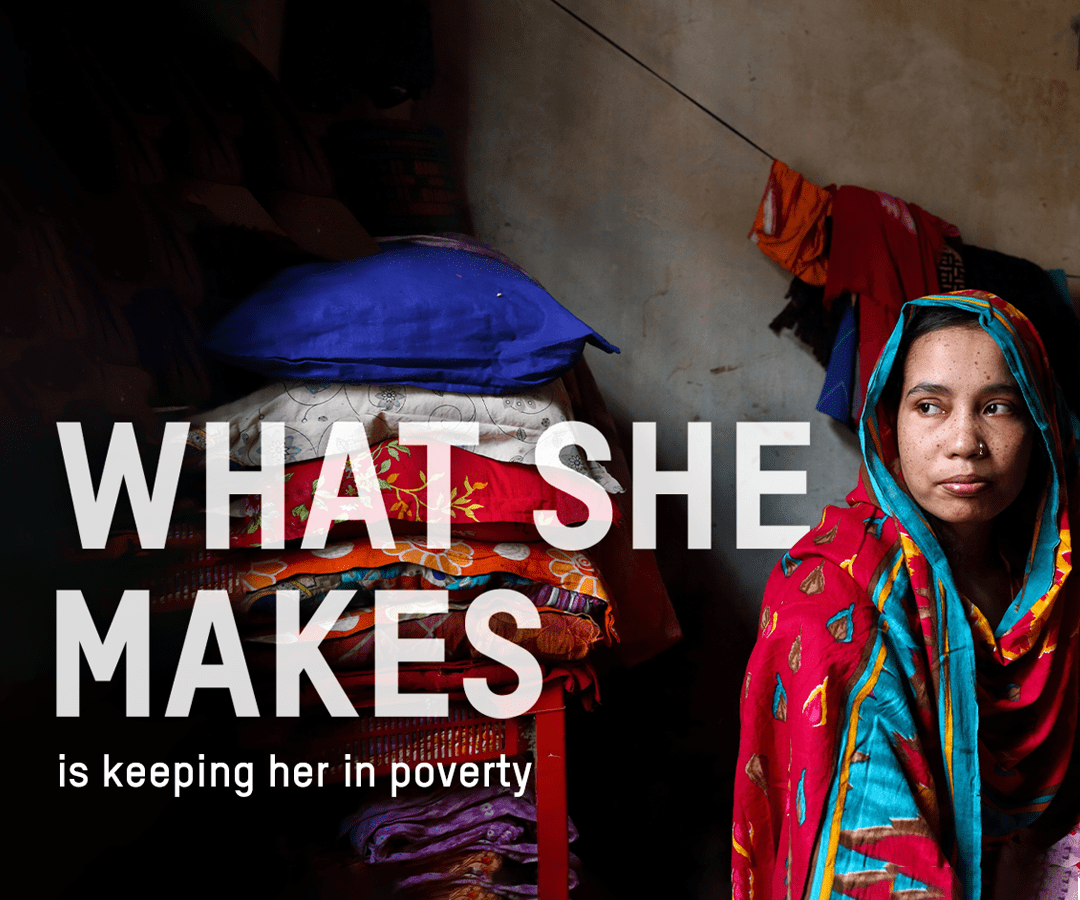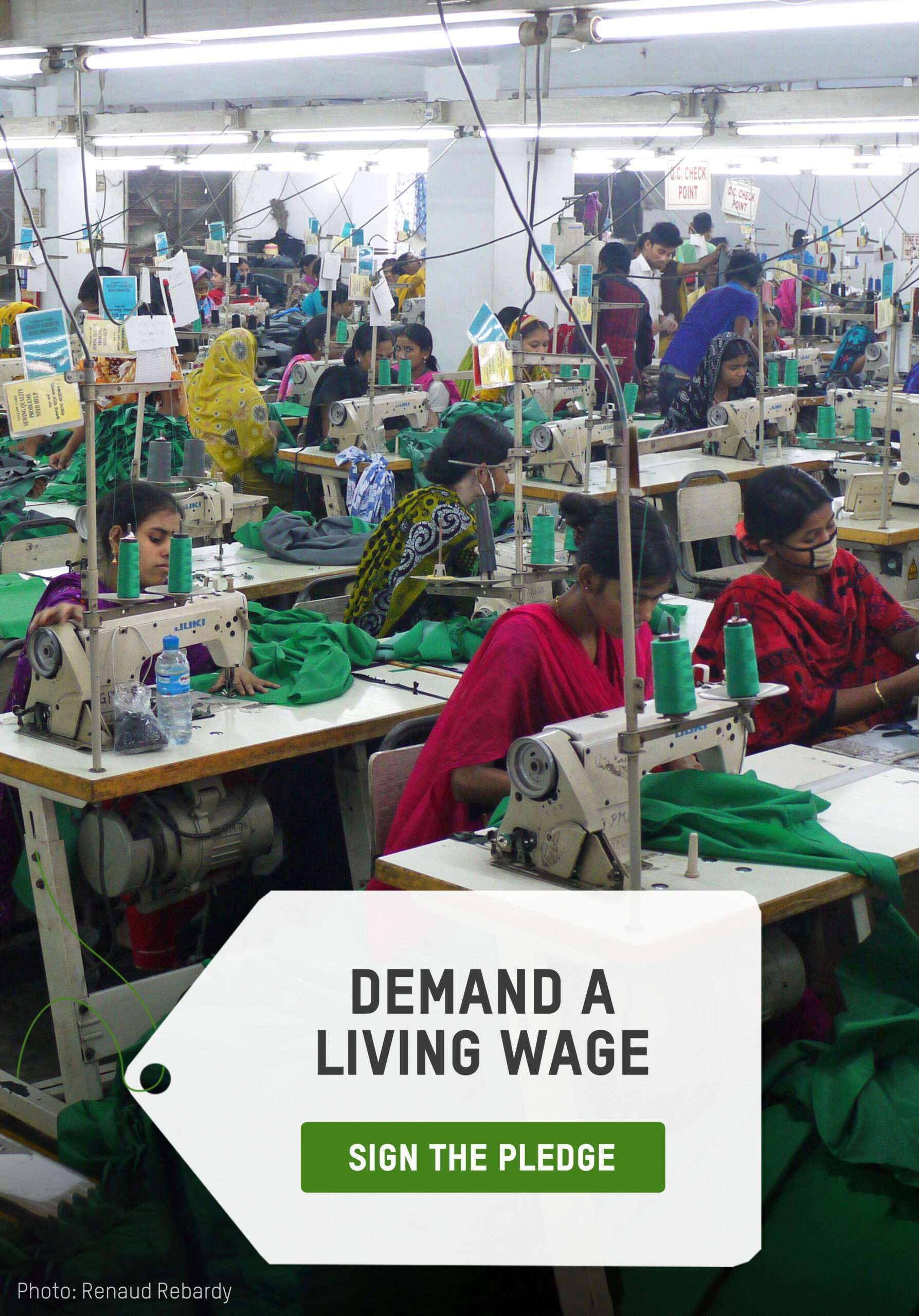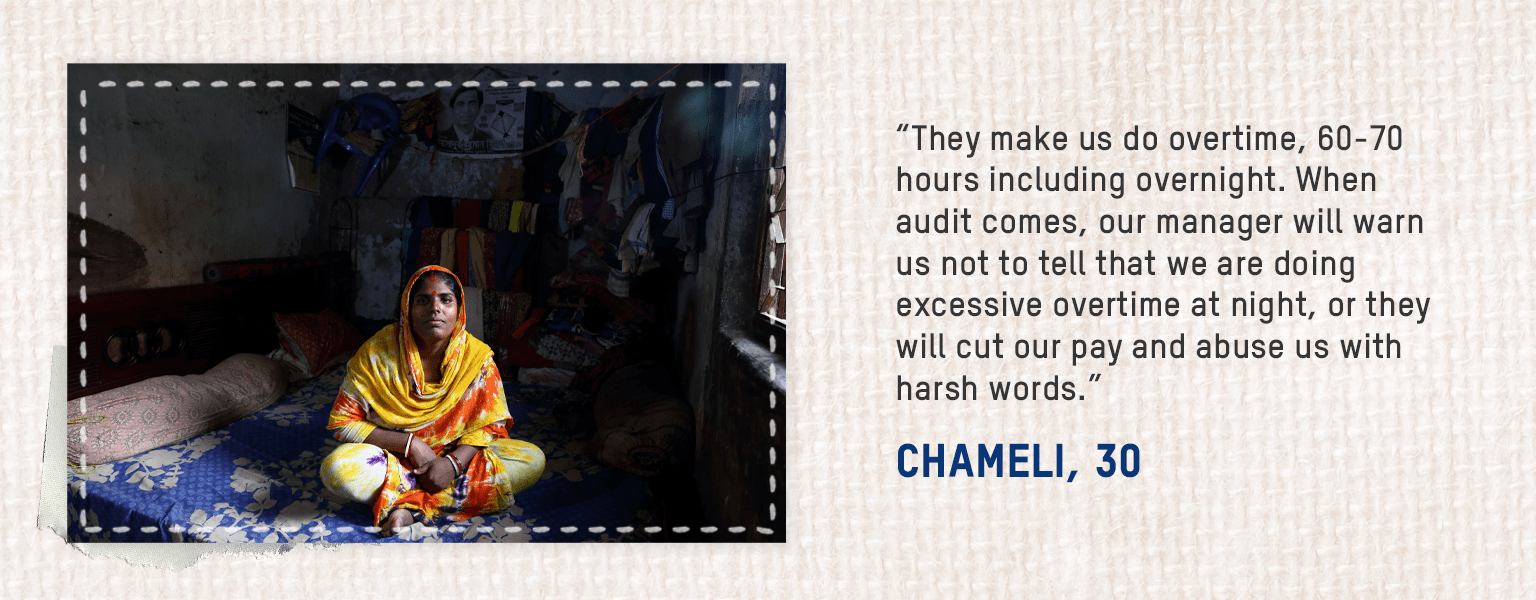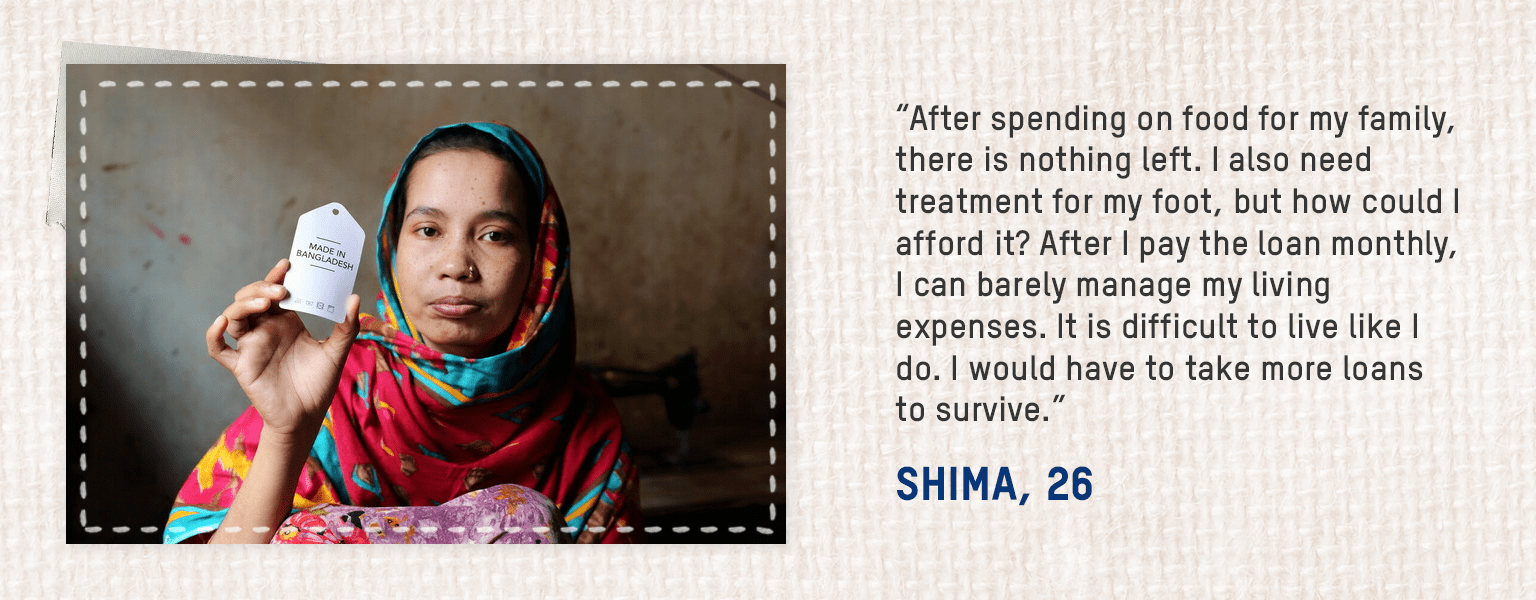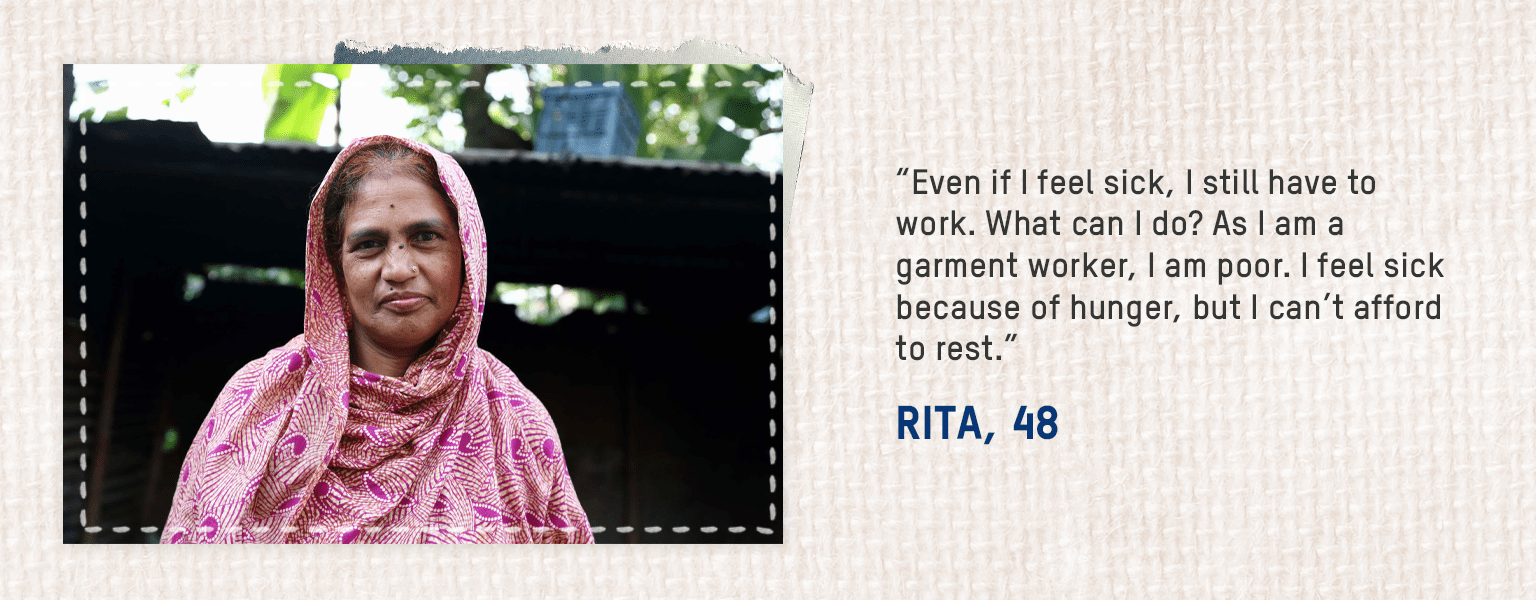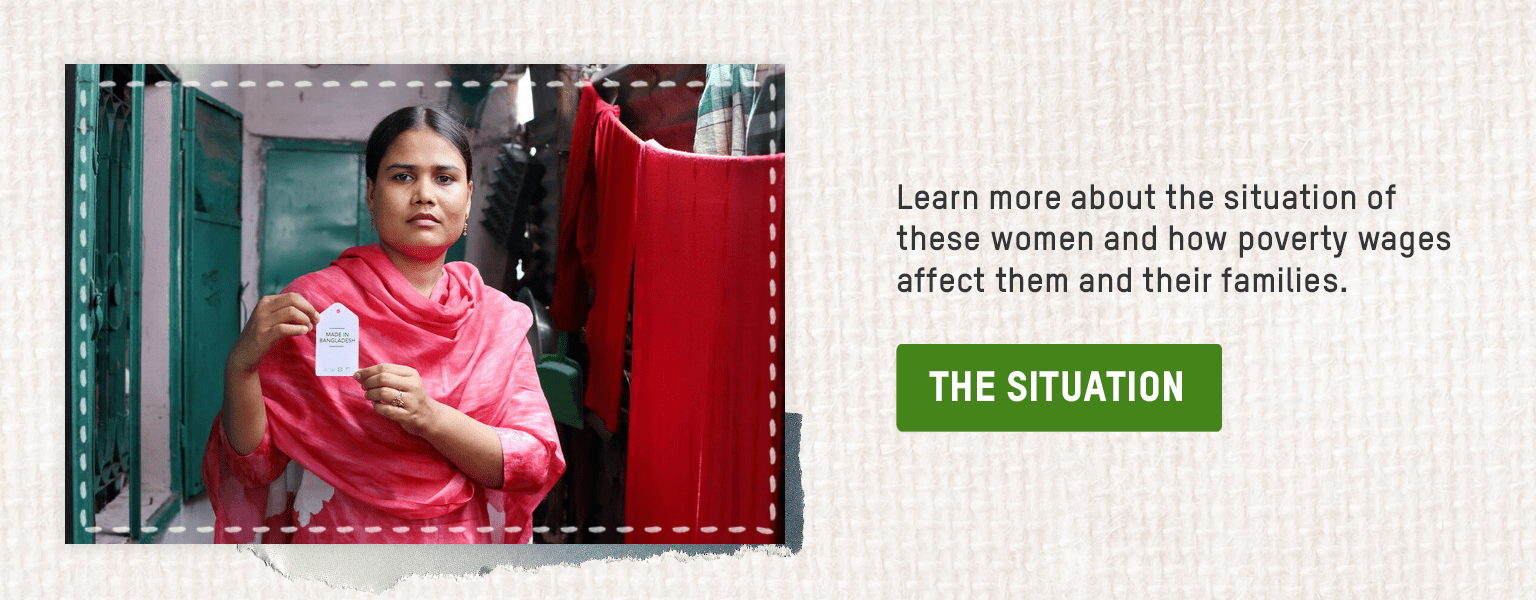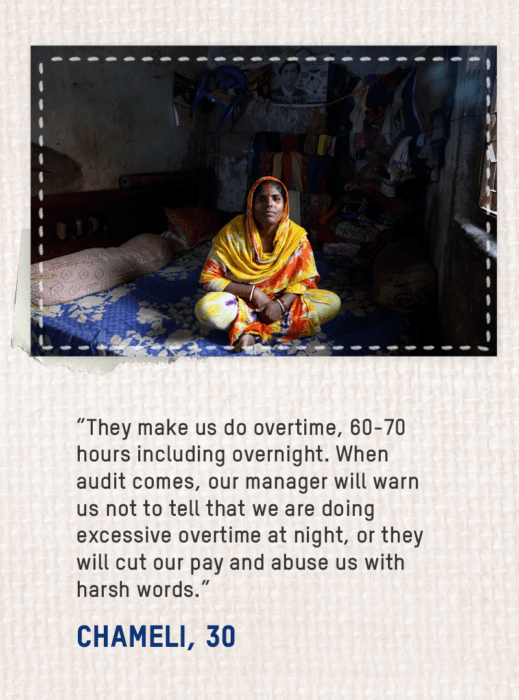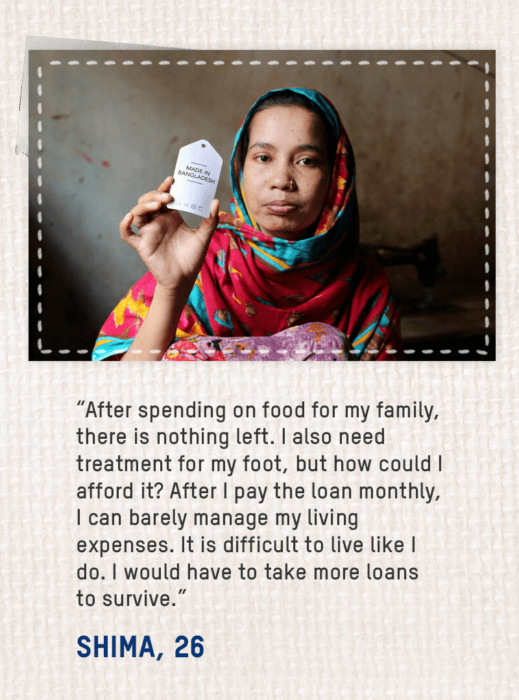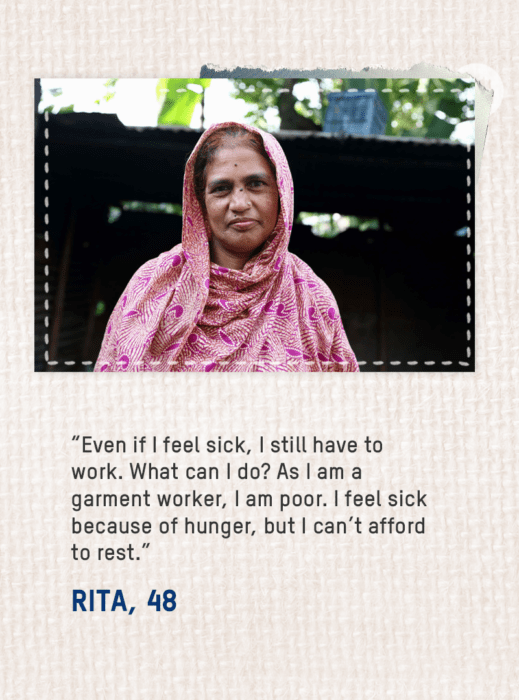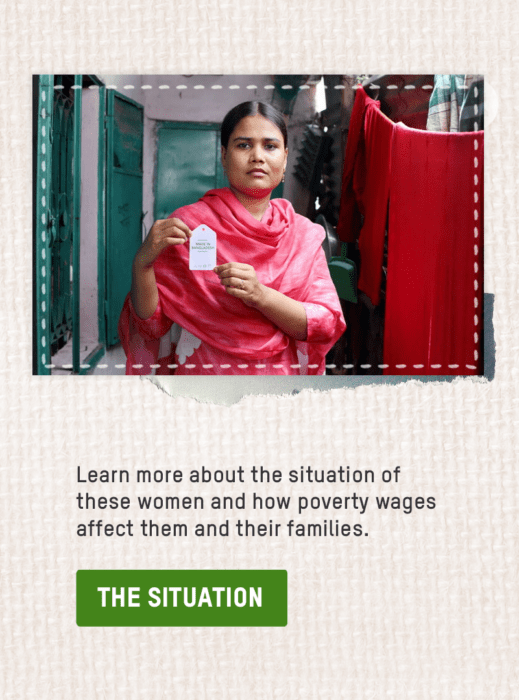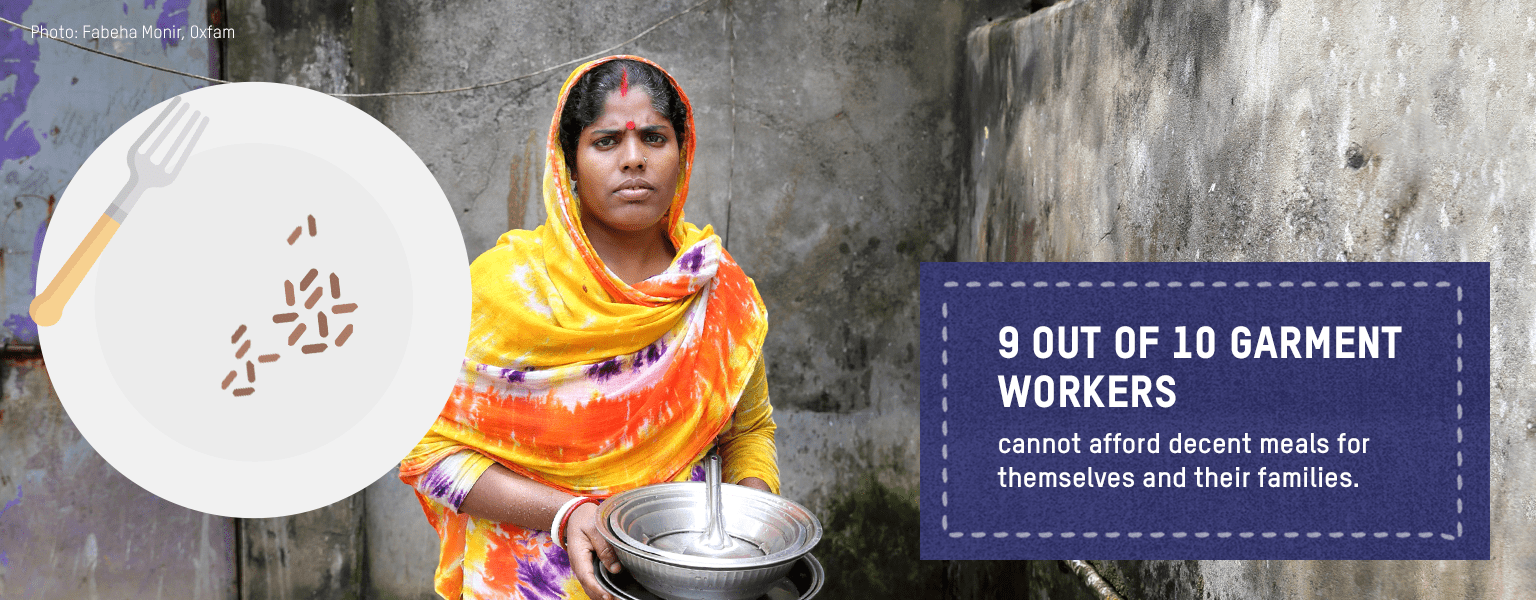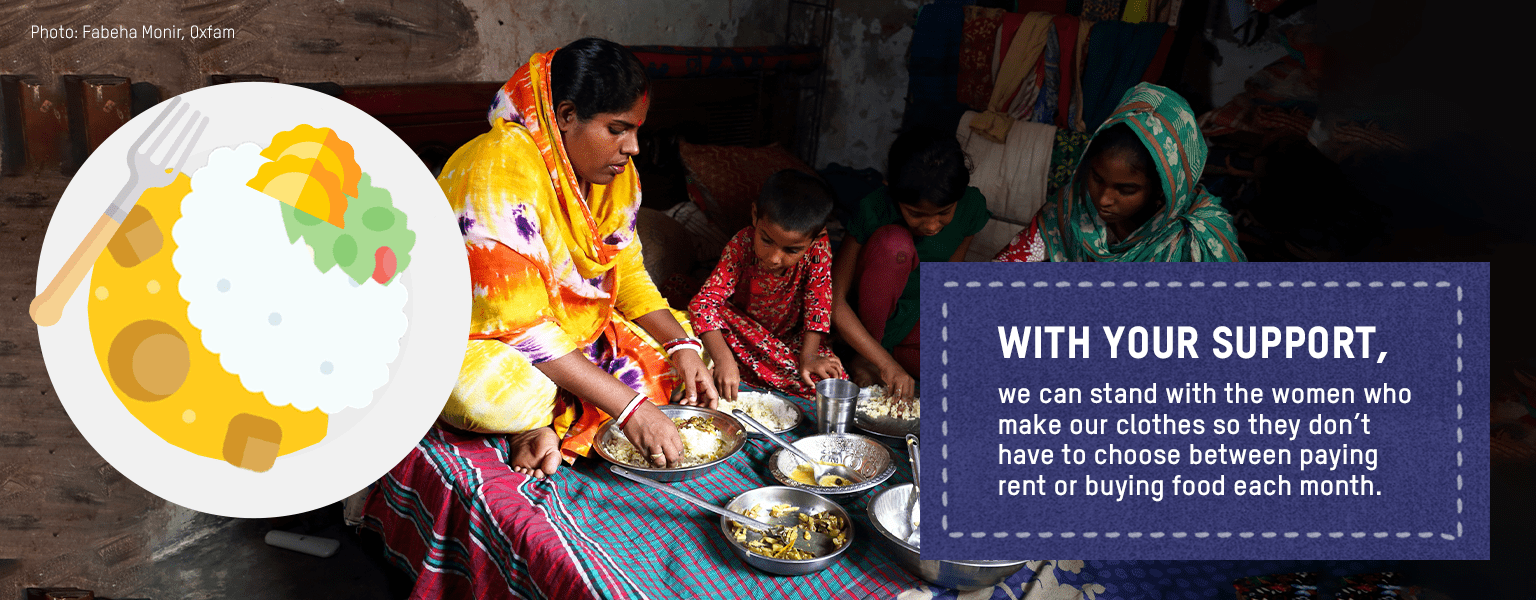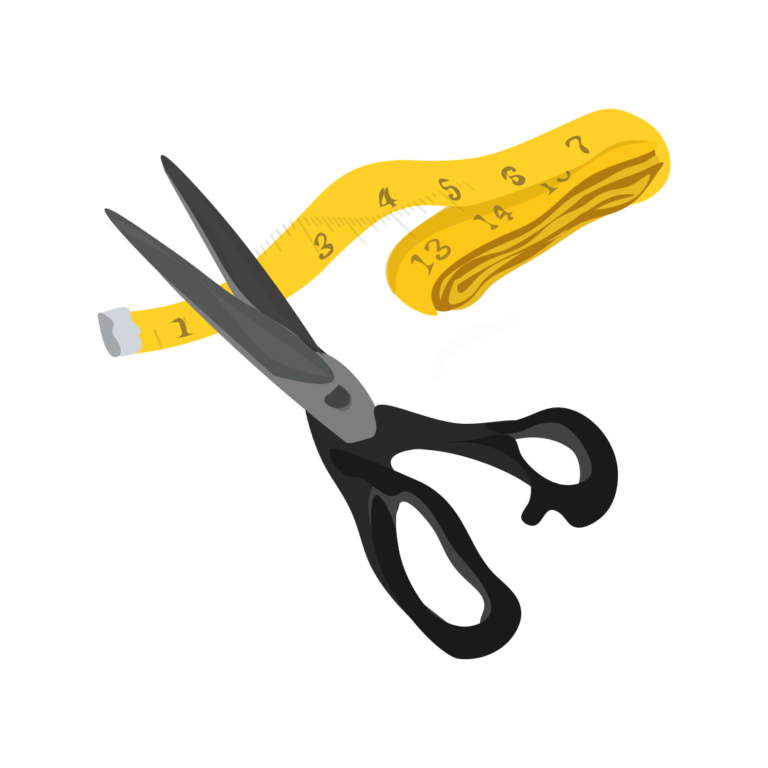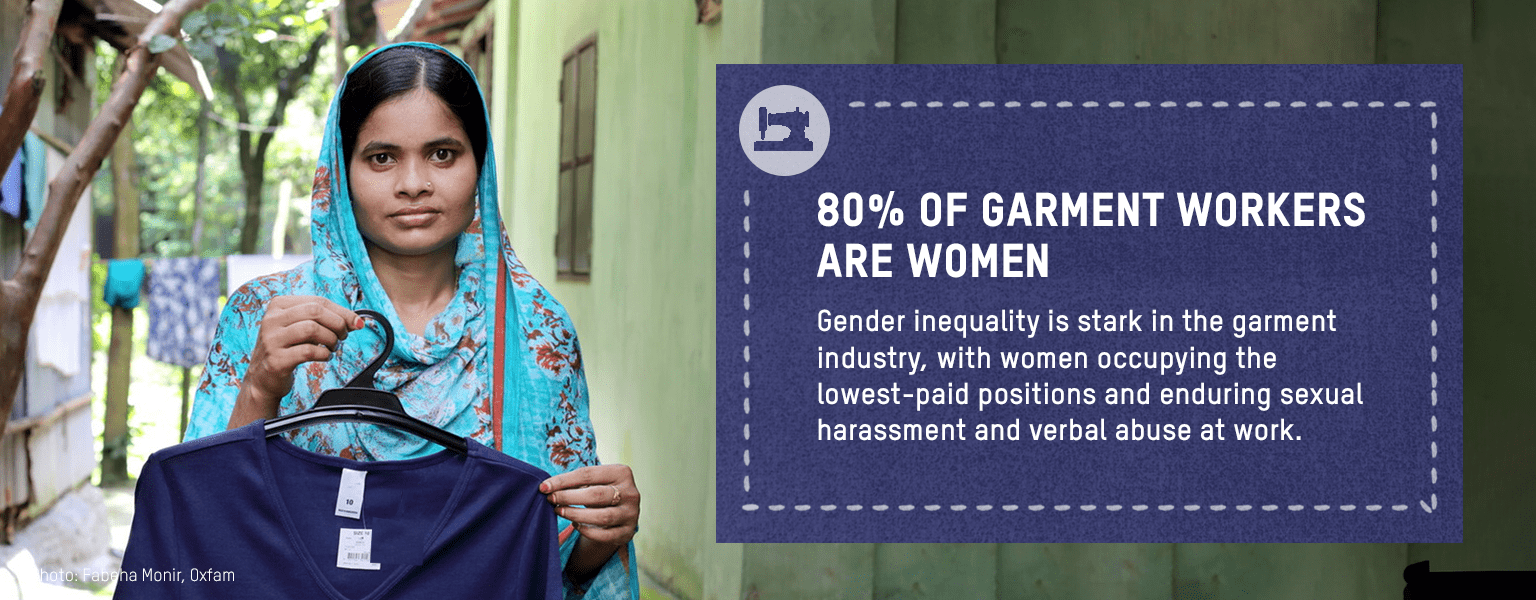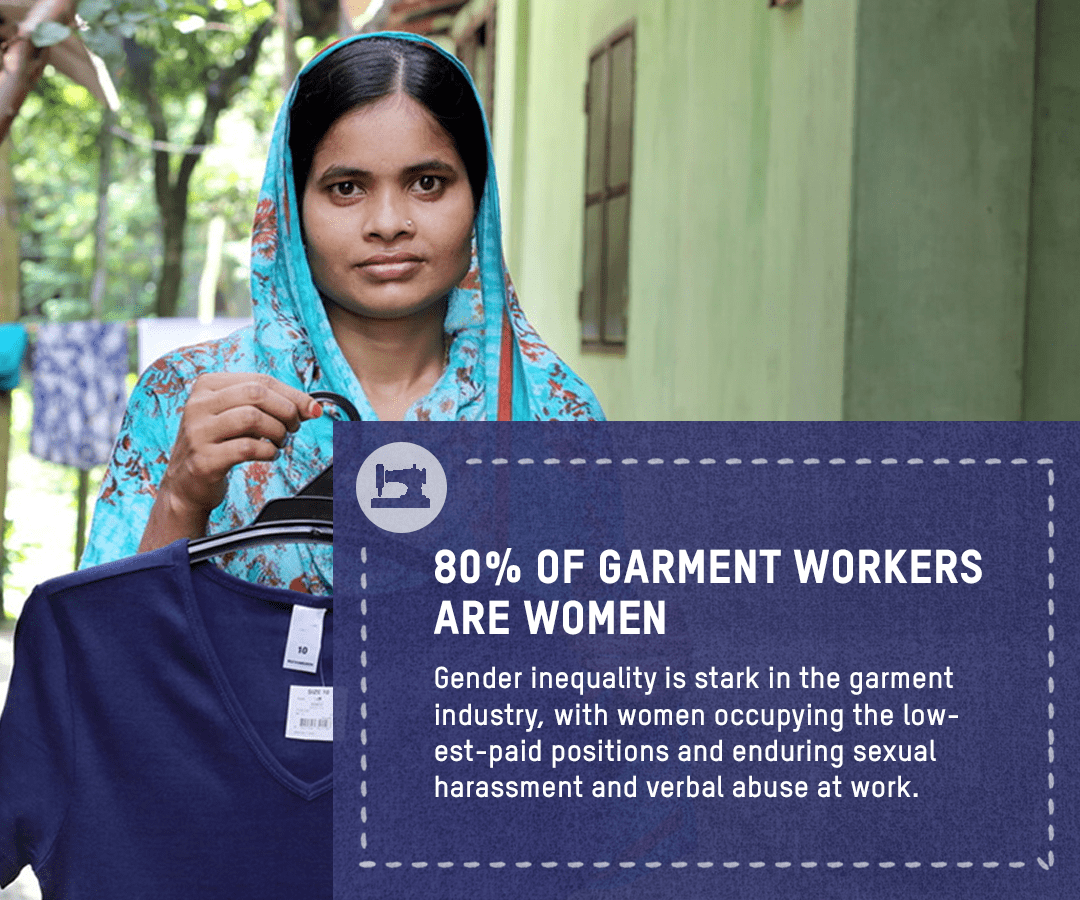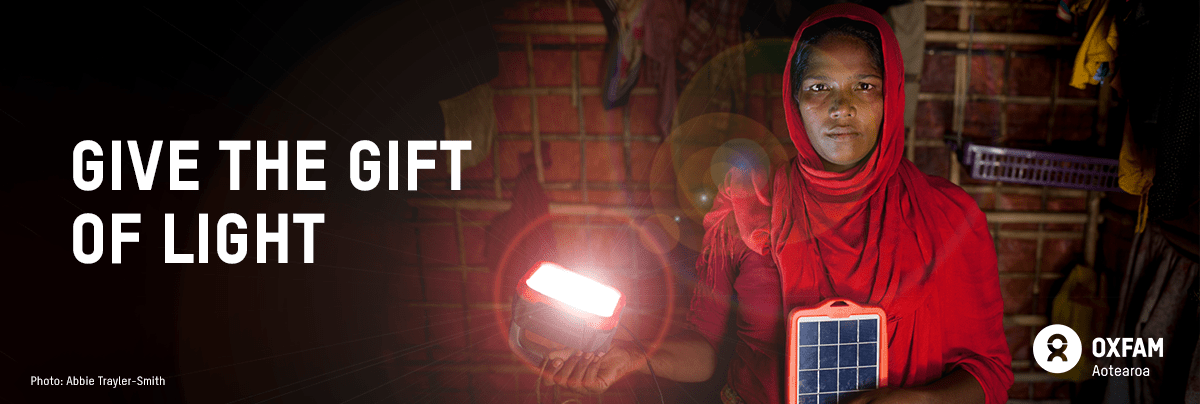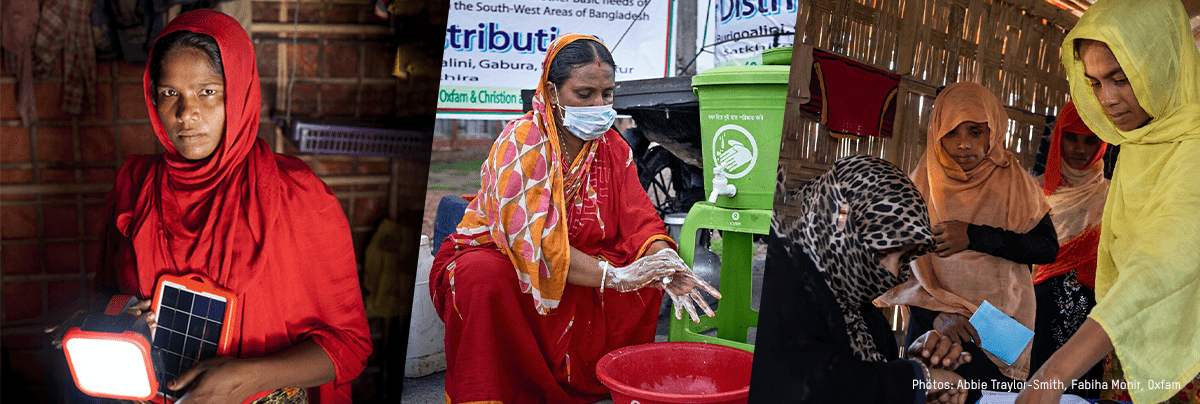
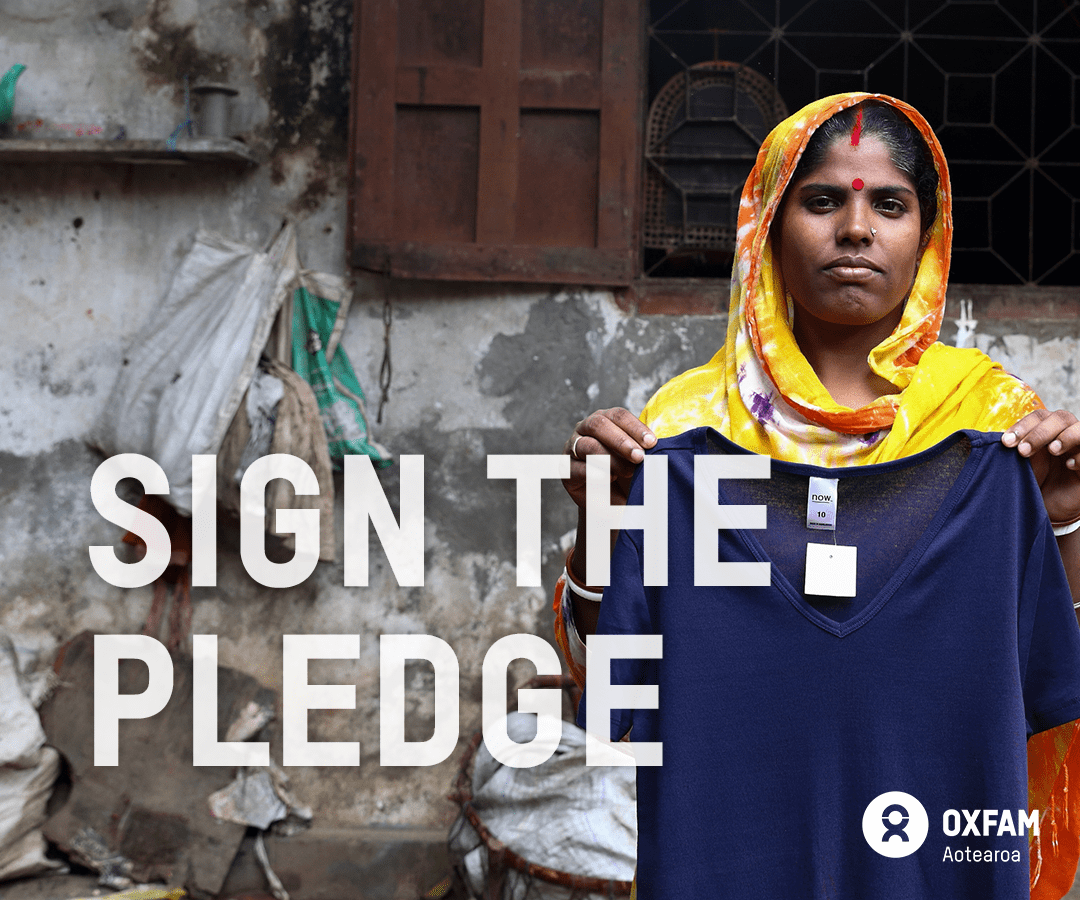
MAKE YOUR VOICE HEARD
I pledge to stand with the women who make our clothes. I want these women to get a living wage so they can afford the basic needs of life
Systemic exploitation and widespread poverty wages are denying these women basic human rights and decent lives.
Join us to hold brands accountable. Together, let’s tell them to stop profiting by keeping millions of women in poverty and demand real action. It’s time to end this injustice and make brands pay a living wage so their workers can not only survive, but thrive.
Add your name now. Speak out and demand that clothing brands selling in New Zealand pay a living wage. #WhatSheMakes
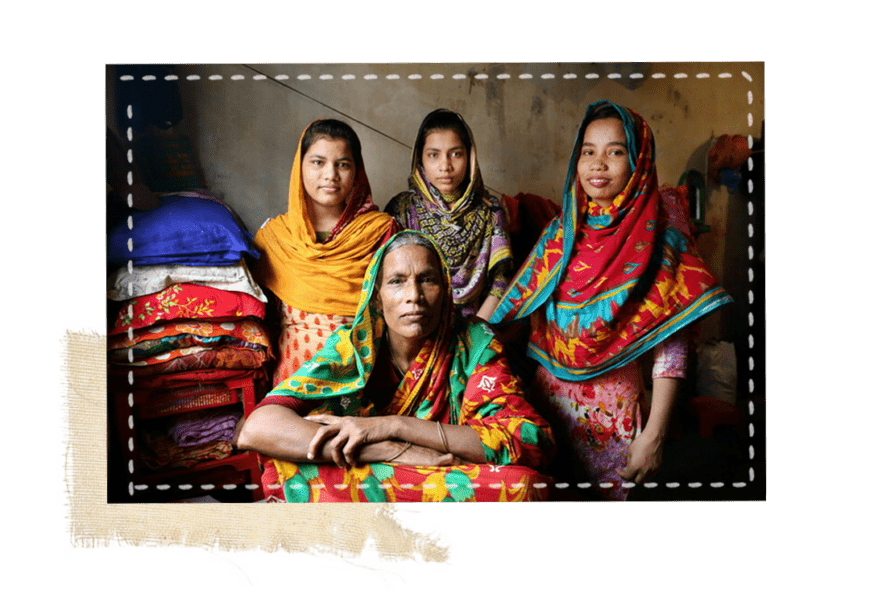
BIG BRANDS SHOULD HAVE NOTHING TO HIDE.
Supply chain transparency is a critical step in paying a living wage and in changing the lives of the women who make our clothes.






